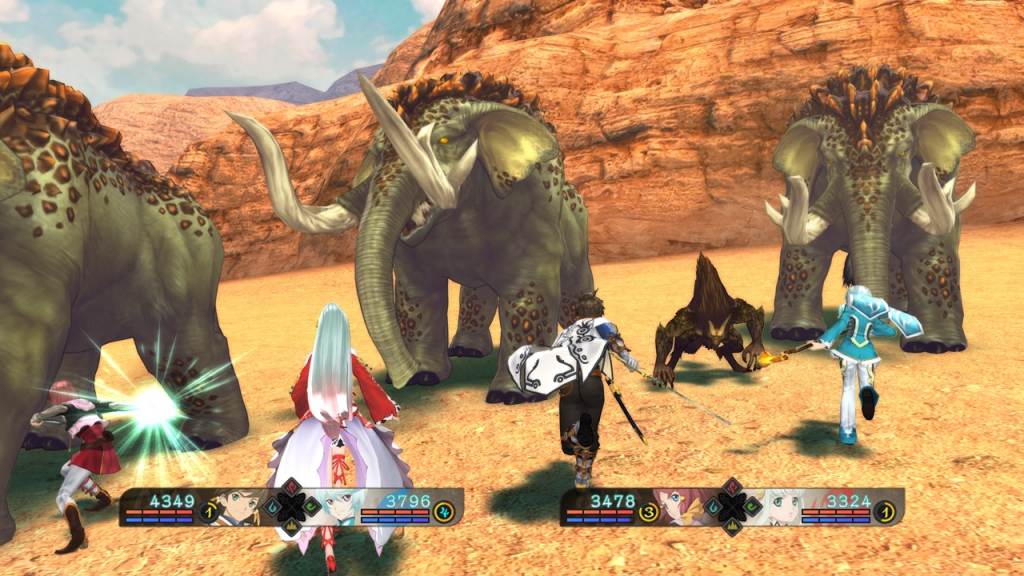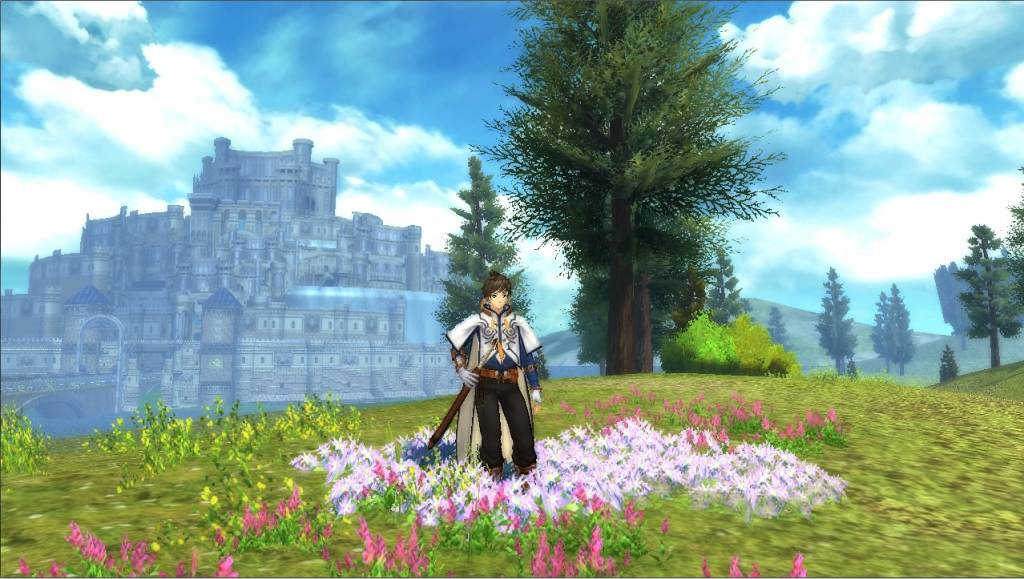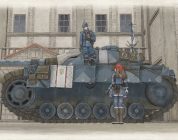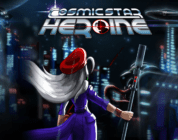There are a few categories an RPG can fall into; hundred plus hour epics, slapped together monstrosities lasting 20 hours or so, and those small fill-in-the-gaps entries. Tales of Zestiria falls into that latter category. Final Fantasy it isn’t, but it’s a wonderful game to scratch that JRPG itch that many of us get periodically.
The Tales series is a fixture in gaming at this point, spilling across dozens of games since the mid 90’s. While the quality has diminished greatly since its heyday, Tales of Zestiria proves that the series can progress and head off into new directions without sacrificing its heart. While the story sticks to the typical “Chosen One Must Save The World With His Friends” formula we’ve seen a thousand times from RPG’s, there are risks taken, to mixed success.
Out of the many changes in Zestiria, most notable is the way the world is now set up, namely the open world. Gone are the linear hallways, the truncated maps, and the repetitive nature of level grinding. Wandering around the plains, deserts, and other parts of the world is very similar to White Knight Chronicles in terms of movement feel and set up. There are obvious barriers, and the maps are nowhere near a game like Fallout, but it offers a feeling of exploration. With collectables and upgrades peppered throughout, there is a good reason to set off and explore instead of pushing through the main story. In fact, the difficultly spikes from main quest to main quest require at least some exploration in order to better prepare yourself for the next hurdle.
While the outside world is certainly a huge step up, traversing the dungeons is far less satisfactory. There is a sad lack of originality to them, primarily due to the linearity of them. Each one is very compact and straightforward, which is great in that you will never be lost, but also monotonous. Some offer small technical puzzles such as what magic gets through a giant spider web, or reveals a secret path, but there is nothing to cause any consternation or require much thinking. Running through simply for the loot and experience makes them worthwhile, but it is not a part of the game that will keep anyone’s intellect running overtime.
Where Zestiria really shines is in its combat system. Battles still take place in a small arena of sorts, a merger of action and timed attacks between your party and your belligerent foes. The main focus here is on the “Artes” your characters learn, a form of magical and/or more powerful attacks that you can chain together with your other basic moves to create combos. The seraphic friends that make up the magical side of the tale also allow you to go into classic anime form by combining with you into a magical, robotic looking killing machine.
All of these enjoyable additions to combat are now tied to gauges and cool downs, preventing you from being an unstoppable killing machine, and forcing strategy in the long, drawn out battles. Weapons are also customizable, giving you three slots in which to add effects and buffs, a freedom that allows players to do what they want, instead of waiting for a weapon that is partially what they want. The system is slightly convoluted (unsurprisingly), but it adds a personal dimension that was sorely needed. While clunky at times, hack and slashing your way through the world is wonderfully satisfying.
Unfortunately, the actual tale in Tales of Zestiria is heartbreakingly poor. It isn’t insultingly bad, or even poorly written. It is just… there. This is typical anime fare, hitting all the stereotypes in both character and story beat. Luckily, most cut scenes can be skipped, meaning a failure in battle doesn’t mean you’re punished with the same 10 minutes of campy dialogue. It will absolutely appeal to some, and for those that don’t fall in love with it, there is still enough to engage players.
Tales of Zestiria is a mixed bag of slavish RPG traditions, and an attempt to break out of them despite a low budget. Outside the actual game, it is fascinating to see the series evolve in a way that is almost entirely positive. It isn’t a masterpiece, but will be a perfect game for fans of the series, and a decent jumping off point for people coming back to the series in its modern form.







